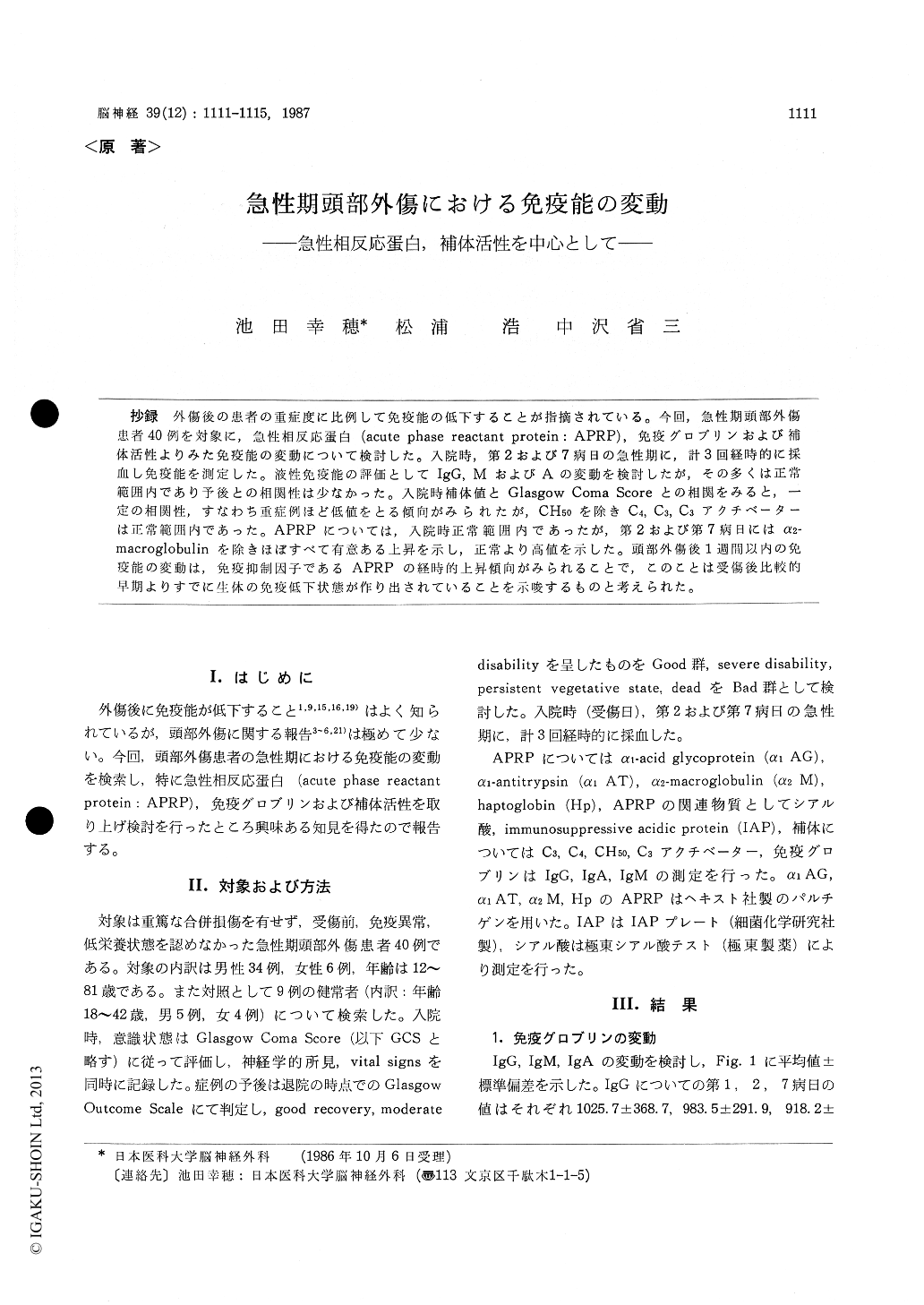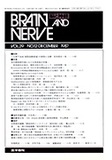Japanese
English
- 有料閲覧
- Abstract 文献概要
- 1ページ目 Look Inside
抄録 外傷後の患者の重症度に比例して免疫能の低下することが指摘されている。今回,急性期頭部外傷患者40例を対象に,急性相反応蛋白(acute phase reactant protein:APRP),免疫グロブリンおよび補体活性よりみた免疫能の変動について検討した。入院時,第2および7病日の急性期に,計3回経時的に採血し免疫能を測定した。液性免疫能の評価としてIgG, MおよびAの変動を検討したが,その多くは正常範囲内であり予後との相関性は少なかった。入院時補体値とGlasgow Coma Scoreとの相関をみると,一定の相関性,すなわち重症例ほど低値をとる傾向がみられたが,CH50を除きC4, C3, C3アクチベーターは正常範囲内であった。APRPについては,入院時正常範囲内であったが,第2および第7病日にはα2-macroglobulinを除きほぼすべて有意ある上昇を示し,正常より高値を示した。頭部外傷後1週間以内の免疫能の変動は,免疫抑制因子であるAPRPの経時的上昇傾向がみられることで,このことは受傷後比較的早期よりすでに生体の免疫低下状態が作り出されていることを示唆するものと考えられた。
The role of immunological mechanisms in head injury is not clearly defined.
In this study we investigated the immunological function in patients with acute head injuries. Serum acute phase reactant proteins (APRP), complement activation and immunoglobulines as immunological parameters were studied. APRP are produced in the liver and increase in cancer patients as well as in those with acute and chronic inflammations, trauma and autoimmune diseases. APRP are known to be one of the immunosuppressive factors in the serum.
Forty patients with acute head injuries were studied. Thirty-four patients were male and six pa-tients were female, ages ranged from 12 to 81 years. Serial blood samples were obtained during the first seven days of trauma. The Glasgow Coma Score (GCS) were recorded at the time of admis-sion for all patients. Clinical outcome was asses-sed at the time of discharge according to the Glasgow Outcome Scale. The "good" group con-sisted of patients with good recovery or moderate disability. The "bad" group consisted of patients with severe disability, persistent vegetative state and death.
The concentrations of immunoglobulines (IgG, IgM, IgA) were within normal range and hu-moral immunity was not affected. Complement ac-tivation at the time of admission was closely re-lated to GCS (p<0. 01), but the levels of C4, C3, and C3 activator except for these of CH50 were within normal range. The concentrations of APRP at the time of admission were within normal range, but they showed a significant increase during the first seven days of trauma except for these of az macroglobulin, which suggested that the immuno-suppressive factors showed a tendency towards increase in the early stage after head injury.
We have to consider and discuss the immunolo-gical function in patients with head injury, even in the acute stage.

Copyright © 1987, Igaku-Shoin Ltd. All rights reserved.


